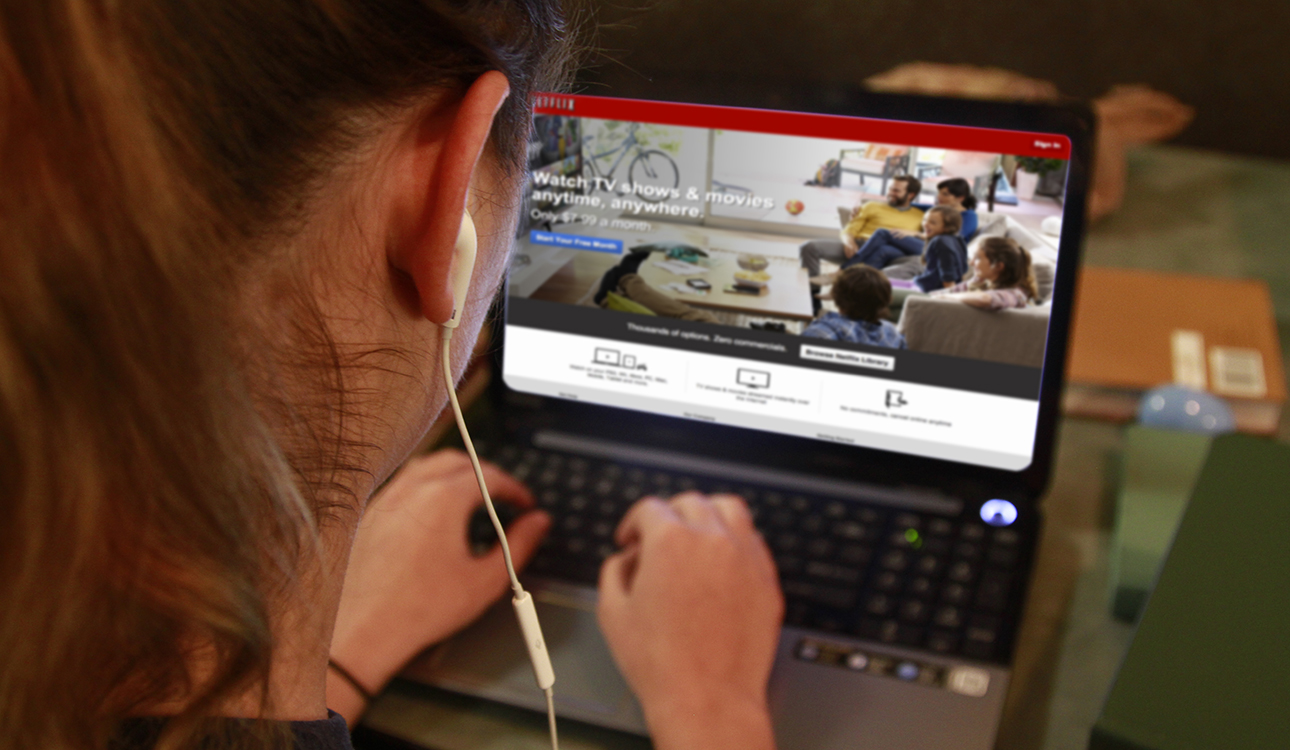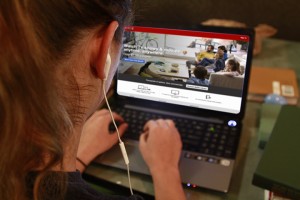By Taylor Griffin
News Editor
On Valentine’s Day earlier this year, sleazy politician Frank Underwood wooed the world once again with his syrupy-sweet southern accent and maniacal tilt of the head. After a yearlong hiatus, both he and his equally diabolical bride strangled the life out of allies and foes alike with their conniving, cunning charm.
Despite the sickening debauchery, America fell in love with the Underwoods. While they’re only fictional characters in the Netflix original political drama, “House of Cards,” the couple managed to lure in upwards of 5 to 15 percent of all Netflix subscribers watching at least one episode during the second season’s weekend release, according to a survey by Procera.
In addition, about 2 percent of the 33.4 million — upwards of 665,000 — Netflix users finished the 13-episode season over the weekend.
Furthermore, a fourfold increase in viewership from the first season’s weekend release last year solidified the growing sensation that has fed television enthusiasts and procrastinators: Netflix binge watching.
As the runner-up for 2013’s word of the year, this idea of gorging on hours of TV is transcending the way people intake media.
“It’s changing the way we consume television, and it’s changing their [consumers] expectations about it,” said Chris Hansen, associate professor of film and digital media.
Although the idea of television binge watching began with boxed DVD sets or re-run marathons, the invention of Netflix, Hulu and other streaming services created an on-demand presence — a breeding ground for obsessive bingeing.
This process also made way for experimenting in original series such as “Orange is the New Black” for Netflix or giving viewers the opportunity to catch up on past seasons of shows such as AMC’s “Mad Men.”
The on-demand model of television and dropping whole seasons at once is a real game changer, Hansen said. For Netflix in particular, rebooting Fox’s “Arrested Development,” a sitcom that aired for three seasons, was a smart move considering it had a built-in fan base.
“I already think that people of your generation expect to have access to things like that on demand when they want it and not on a schedule,” Hansen said.
Though it can provide an excellent means of escape from the day-to-day grind for college students in particular, regular binge watching has the potential to be detrimental to performance in the classroom, Hansen said.
“While it’s fun to binge watch a season of ‘Arrested Development’ because everybody loves it, if it means you’re missing studying for your midterm, then it’s being slothful,” he said.
To further analyze its own success, Netflix worked alongside cultural anthropologist Grant McCracken to interpret the bingeing phenomenon as well as predict the path it might take society.
He found that a perfect storm of quality TV, the current economy and the explosion of the digital lifestyle all equally contributed to the rise of the couch potato.
McCracken also concluded that the over-digitalization of this culture leaves audiences craving juicier, longer storytelling in television.
“TV viewers are no longer zoning out as a way to forget about their day,” he said. “They are tuning in, on their own schedule to a different world. Getting immersed in multiple episodes or even multiple seasons of a show over a few weeks is a new kind of escapism that is especially welcomed today.”
Hansen said the characters, however, are the heartbeat of a show’s ultimate success. Kevin Spacey’s delightfully diabolical schemes in “House of Cards” and the black comedy-infested jail cells of “Orange is the New Black” are the driving tour de force behind these shows.
“Addicting television is just about a character that interests us, for whatever reason, and we’ll follow them,” he said.
Despite the growing sensationalism of immediate watching, good storytelling hasn’t changed with the Netflix movement, Hansen said, and as long as the show has dynamic characters, thoughtful writing and quality acting, it has the perfect recipe for success.
“Some people are going to absorb it all immediately, and some people are going to discover it later,” he said. “And that’s the genius of the model; it’s just always there.”
But for some students, binge watching isn’t necessarily taking away from study time. As a film and digital media major, Irvine, Calif., junior Alex Zack said she sees her self-proclaimed obsession to anything in the horror genre as an extension of her schoolwork.
Hit shows like “Breaking Bad,” “American Horror Story” and “Bates Motel” all feed her Netflix appetite, which she said is at least an hour a day.
“I learn from watching these shows and see how they’re edited, which in turn improves my skills in editing,” she said.
Whether or not it distracts from commitments, Hansen said the phenomenon of television binge watching is timeless; people simple don’t want to miss out on a great story.
For many, catching the show in the cultural moment in which it is occurring is the essence of the experience, Hansen said, and binge watching becomes the only medium to fulfill this need.
“When presented with something worthy of their attention, people will give it for hours and hours at a time,” Hansen said. “The reality is that a lot of stuff out there is not worthy of our attention. I think we do crave it, but I also think we’re just as capable now as we ever were of delving deep into things.”







